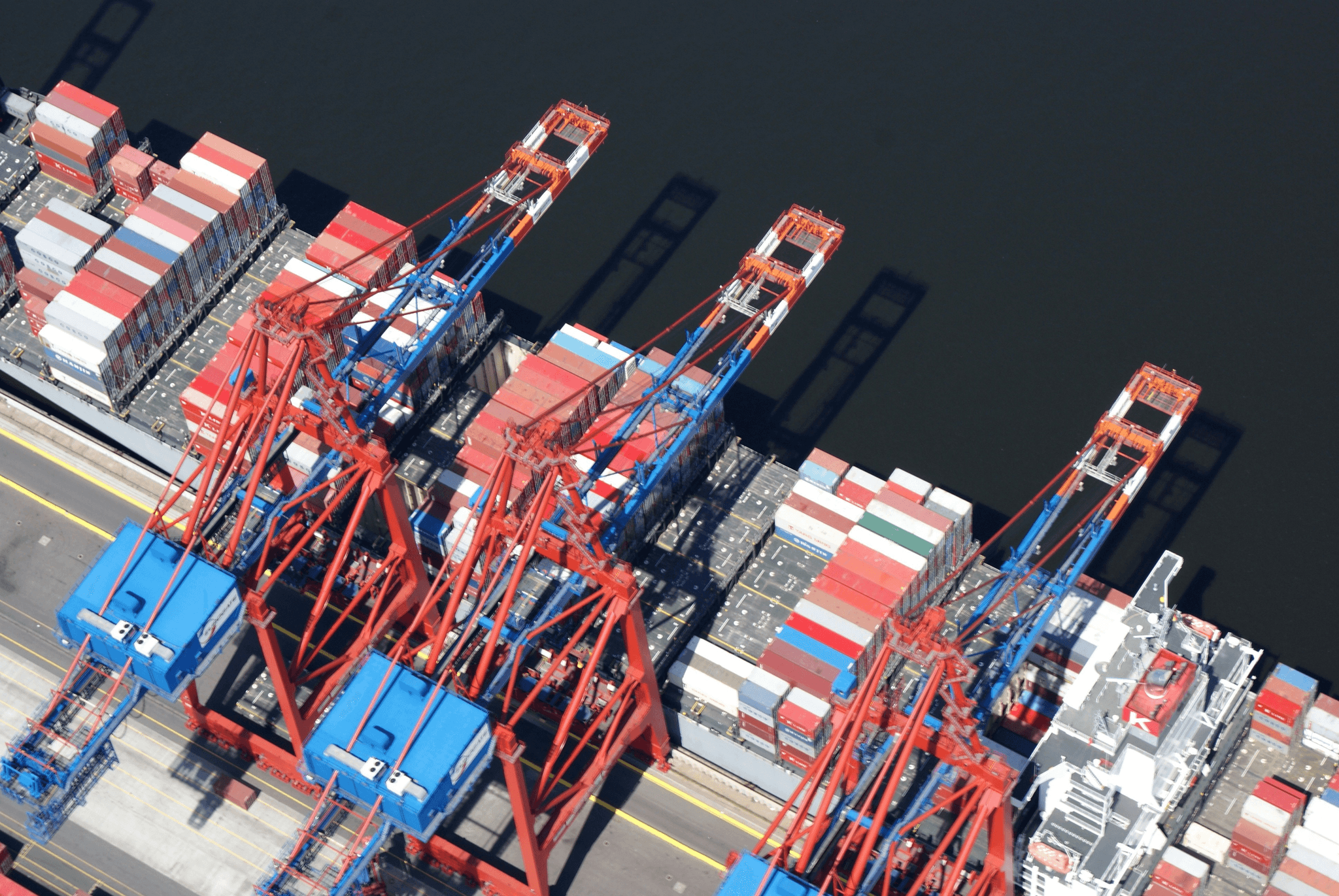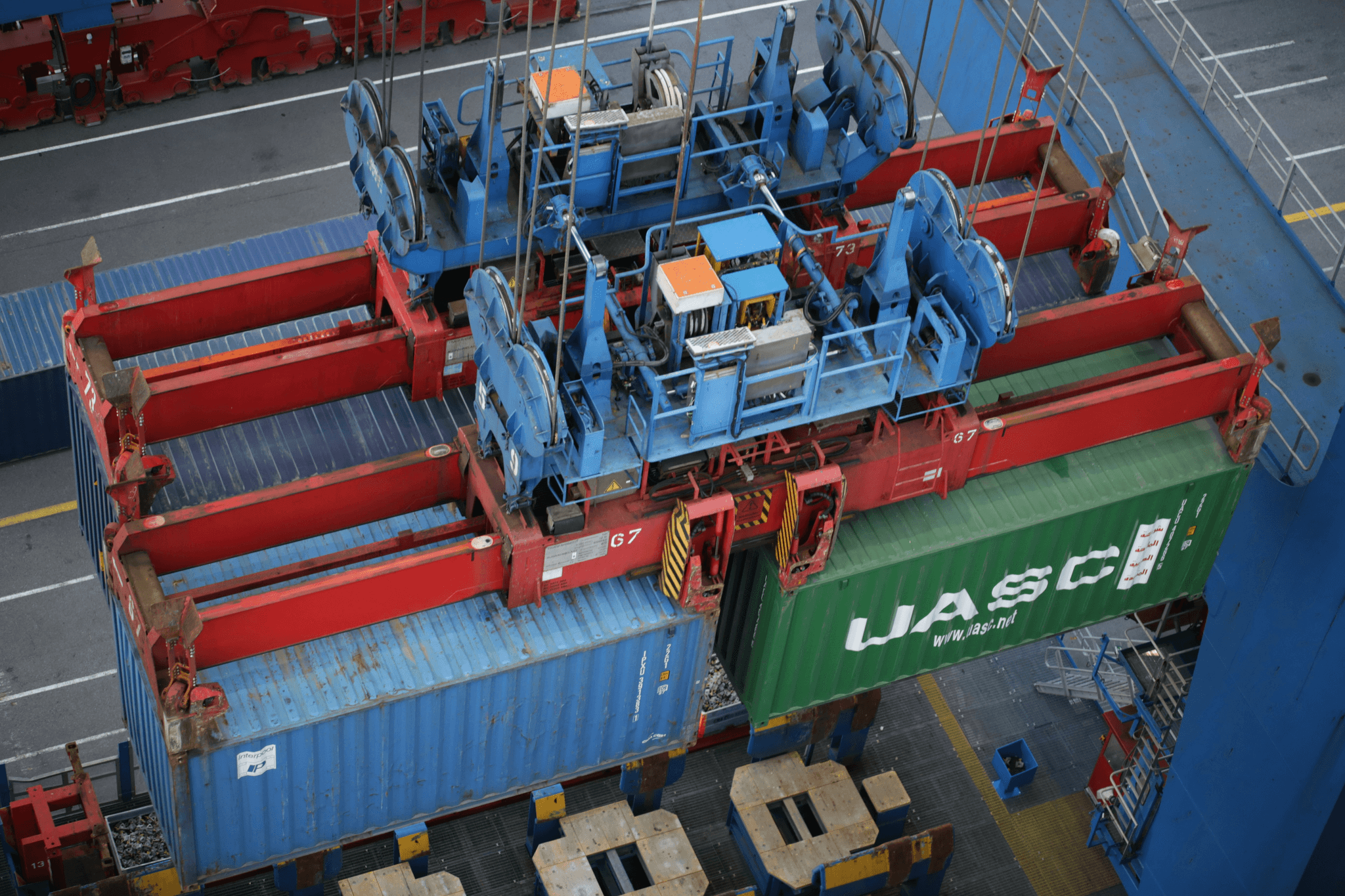Introduction

Navigating the complex waters of international trade can feel like traversing a labyrinth without a map. Understanding ownership transfer is crucial, as it dictates who bears the risk at various stages of a transaction. In this guide, we will dive deep into FOB Shipping Terms and how they shape the landscape of global commerce.
Understanding Ownership Transfer in Trade
Ownership transfer in trade is not just a formality; it’s the backbone of any successful transaction. When goods change hands, understanding when and how ownership shifts can save businesses from costly disputes. This is where terms like FOB Shipping Terms come into play, providing clarity and structure to what could otherwise be an ambiguous process.
Key Trade Terms Explained
In the world of international trade, jargon can often confuse rather than clarify. Key trade terms serve as essential signposts that guide buyers and sellers through their transactions with ease and confidence. By breaking down these terms, including FOB Shipping Terms, we can demystify the process and empower traders to make informed decisions.
Importance of FOB Shipping Terms
FOB Shipping Terms are more than just a set of guidelines; they are critical for defining responsibilities between buyers and sellers during transit. Knowing when ownership transfers under these terms can prevent misunderstandings that lead to financial losses or legal complications—hence why we’ll explore The Risks of Using FOB later on. Ultimately, grasping these shipping terms done right ensures smoother transactions in A Typical International Transaction Using FOB, making them indispensable for anyone involved in global trade.
Overview of Trade Terms

Understanding trade terms is essential for navigating the complex world of international commerce. These terms not only facilitate clear communication between buyers and sellers but also play a critical role in determining when ownership transfers during transactions. In this section, we will define key terms in international trade, explore the significance of Incoterms in ownership transfer, and highlight some commonly used trade terms.
Defining Key Terms in International Trade
International trade is filled with jargon that can be daunting for newcomers. Terms like FOB Shipping Terms and CIF are more than just acronyms; they encapsulate vital information about responsibilities and risks involved in shipping goods across borders. By grasping these definitions, businesses can ensure smoother transactions and avoid misunderstandings that could lead to costly mistakes.
The Role of Incoterms in Ownership Transfer
Incoterms, or International Commercial Terms, serve as a standardized set of rules that govern shipping practices globally. They define the responsibilities of buyers and sellers regarding transportation costs, risk management, and delivery obligations—essentially clarifying when ownership transfers from one party to another. Understanding how Incoterms operate is crucial for anyone involved in international transactions as it sets the stage for Shipping Terms Done Right, minimizing potential disputes.
Commonly Used Trade Terms
In the realm of international trade, several key terms frequently pop up: FOB (Free On Board), CIF (Cost Insurance Freight), EXW (Ex Works), and more. Each term carries specific implications regarding who bears costs at different stages of the shipping process—making it vital to choose wisely based on your transaction needs. Familiarity with these commonly used trade terms can help mitigate The Risks of Using FOB while facilitating smoother negotiations.
FOB Shipping Terms Explained

FOB, or Free On Board, refers to a specific point in the shipping process where ownership and risk are transferred from the seller to the buyer. This section will delve into what FOB stands for, when ownership changes hands under these terms, and the responsibilities that come with them.
What Does FOB Stand For?
FOB stands for Free On Board, a term that originates from maritime shipping but has become a staple in international trade discussions. Essentially, it indicates that the seller is responsible for delivering goods to a designated port and loading them onto a vessel chosen by the buyer. Once the goods are on board, any risks associated with transport shift to the buyer—hence why getting your head around FOB shipping terms is essential for smooth transactions.
When Does Ownership Transfer Under FOB?
Ownership transfer under FOB occurs at the moment when goods are loaded onto the vessel at the designated port of shipment. This means that if something goes awry during transit after this point—like damage or loss—the buyer bears responsibility. Understanding this timing is vital; it can save you from potential headaches down the line and help you navigate The Risks of Using FOB more effectively.
Responsibilities of Buyer and Seller
With great power comes great responsibility—this rings especially true in international transactions involving FOB shipping terms. The seller must ensure that goods are delivered to the port and loaded onto the ship while adhering to all relevant regulations and standards. Meanwhile, once ownership transfers, it's up to the buyer to handle insurance during transport, customs clearance upon arrival, and any risks tied to potential delays or damage during transit—a crucial element in A Typical International Transaction Using FOB.
A Typical International Transaction Using FOB

Navigating the world of international trade can be a daunting task, especially when it comes to understanding FOB shipping terms. However, grasping these concepts is crucial for ensuring smooth transactions and minimizing risks. So, let’s dive into a typical international transaction using FOB and break down the process step by step.
Step-by-Step Process of an FOB Transaction
The journey of an FOB transaction begins with the buyer and seller agreeing on the terms of sale, specifically under the auspices of FOB shipping terms. Once these terms are established, the seller prepares to deliver goods to a designated port while bearing all costs and risks until that point. Upon arrival at the port, ownership transfers from seller to buyer as soon as the goods are loaded onto the vessel.
After loading, it's now up to the buyer to handle shipping arrangements and any associated costs from that moment onward. This clear delineation of responsibilities is what makes shipping terms done right so essential in international trade. By following this structured process, both parties can minimize misunderstandings and ensure a smoother transaction.
Key Legal Considerations
When engaging in an international transaction using FOB shipping terms, several legal considerations must be taken into account to protect both parties involved. First and foremost is ensuring that all documentation is accurate; this includes invoices, bills of lading, and customs declarations that reflect ownership transfer at precisely the right moment under FOB conditions. Failure to provide correct documentation can lead to disputes or delays in customs clearance.
Additionally, it’s vital for both parties to understand their respective liabilities once ownership has transferred—this means knowing who is responsible for insurance during transit or any potential damages incurred post-transfer. Given these complexities, many businesses choose to seek legal guidance when drafting contracts related to shipping terms done right; this ensures compliance with local laws as well as adherence to internationally recognized standards.
The Role of AC&E in International Transactions
In navigating a typical international transaction using FOB shipping terms, organizations like AC&E play an invaluable role in facilitating smooth operations between buyers and sellers across borders. They provide expertise in logistics management while also offering insights into compliance with various regulations governing international trade—a critical aspect given today's complex global landscape.
AC&E also assists businesses in understanding The Risks of Using FOB by providing tailored solutions that mitigate potential pitfalls during transit or after ownership transfer occurs. Their experience allows them not only to guide clients through each step but also ensure that all necessary precautions are taken—making them indispensable partners for anyone looking to engage successfully in global commerce.
The Risks of Using FOB

When it comes to international trade, understanding the risks associated with FOB shipping terms is crucial for both buyers and sellers. While these terms can streamline transactions, they also come with their own set of challenges that can lead to misunderstandings or financial losses. Navigating these risks effectively is key to ensuring smooth international transactions.
Common Pitfalls to Avoid
One of the most common pitfalls in using FOB shipping terms is a lack of clarity regarding when ownership actually transfers from seller to buyer. Misinterpretations can lead to disputes over liability for damages that occur during transit. Additionally, failing to outline responsibilities clearly in the contract can result in unexpected costs or delays, making it imperative for parties involved in a typical international transaction using FOB to communicate openly about their expectations.
Another pitfall arises from inadequate insurance coverage during shipment. Many buyers assume that once goods are on board the vessel, they are no longer their responsibility; this misconception may leave them vulnerable if something goes awry during transit. Being aware of these potential issues can help traders avoid costly mistakes and ensure that shipping terms are done right.
How to Mitigate Risks in FOB Transactions
Mitigating risks associated with FOB shipping terms requires proactive measures and thorough planning before entering into any agreement. First and foremost, both parties should engage legal counsel familiar with international trade regulations and practices to draft clear contracts outlining responsibilities and liabilities. This approach ensures all aspects of ownership transfer are addressed, reducing the likelihood of disputes down the line.
Another effective strategy involves obtaining comprehensive insurance coverage for shipments, which protects against loss or damage while goods are in transit. By ensuring adequate protection is in place before goods leave the seller's premises, both parties can feel more secure about their respective obligations under FOB shipping terms. Furthermore, maintaining open communication throughout the process allows for quick resolution should any issues arise during transport.
Legal Protections Available
In addition to proactive risk management strategies, there are various legal protections available for those engaging in transactions using FOB shipping terms. Contracts should include clauses that specify dispute resolution mechanisms—such as arbitration or mediation—which provide an avenue for resolving conflicts without resorting to lengthy litigation processes. These legal safeguards not only protect individual parties but also enhance overall trust within international business relationships.
Moreover, many jurisdictions offer statutory protections that govern contracts related to trade and transportation, which can further bolster security for traders operating under FOB conditions. Understanding these legal frameworks allows businesses engaged in a typical international transaction using FOB to navigate potential pitfalls more effectively while safeguarding their interests throughout the process.
In summary, being aware of The Risks of Using FOB enables traders to make informed decisions while minimizing potential losses associated with ownership transfer issues and liability concerns inherent in international trade agreements involving these shipping terms.
Understanding Other Shipping Terms

When it comes to international trade, understanding various shipping terms is crucial for smooth transactions. The landscape of shipping terms can be complex, but grasping the nuances between them—especially FOB Shipping Terms, CIF (Cost, Insurance, and Freight), and EXW (Ex Works)—can make all the difference. Each term has its own implications for risk management and ownership transfer, which are pivotal in avoiding The Risks of Using FOB.
Comparing FOB with CIF and EXW
FOB Shipping Terms primarily focus on when ownership transfers from seller to buyer during transit. Under FOB, the seller is responsible for costs and risks until the goods are loaded onto the vessel at the port of shipment. In contrast, CIF includes insurance coverage during transport; hence, sellers bear more responsibility until goods reach their destination port. Meanwhile, EXW puts nearly all responsibilities on buyers right from the seller's premises—making it essential to choose wisely based on your risk appetite.
Each term has distinct advantages depending on your business model and operational needs. For instance, if you prefer more control over shipping logistics and want to minimize costs associated with insurance, you might lean toward FOB Shipping Terms. However, if peace of mind regarding transportation risks is a priority for you or your client, opting for CIF could be a better choice.
Understanding these differences helps businesses navigate international waters without getting lost in jargon or incurring unexpected liabilities. The key takeaway? Choosing between these shipping terms requires careful consideration of both cost implications and risk exposure.
When to Choose Different Shipping Terms
The decision on which shipping terms to use hinges largely on transaction specifics like value of goods involved and level of trust between trading partners. If you're dealing with high-value items or fragile products that require extra care during transport, opting for CIF may be wise due to its built-in insurance coverage against potential losses or damages en route. Conversely, if you're working with regular commodities where cost efficiency is paramount, sticking with FOB Shipping Terms might prove beneficial.
Another factor influencing your choice could be geographical considerations; certain regions may have specific regulations that favor one shipping method over another due to local practices or legal stipulations. For example, in markets where buyers have established relationships with local carriers or freight forwarders who can offer competitive rates under EXW conditions—this might be preferable over other options.
Ultimately, understanding when to choose different shipping terms empowers businesses to tailor their approach based on unique circumstances while minimizing exposure to The Risks of Using FOB or any other term they opt for.
The Impact of Shipping Terms on Ownership
Shipping terms significantly influence ownership transfer timing—a critical aspect that affects cash flow management in international trade transactions. With FOB Shipping Terms specifically highlighting when ownership shifts from seller to buyer as soon as goods are loaded onto a vessel at the port of shipment; this allows buyers some control over logistics once they assume responsibility—potentially streamlining operations down the line.
On the flip side, using CIF means sellers retain ownership—and thus responsibility—for a longer duration until goods reach their destination port safely; this could impact how quickly funds change hands between parties involved in A Typical International Transaction Using FOB. Moreover, under EXW conditions where buyers take full control right away at the seller's location—it’s essential they have robust logistics plans in place because any delays could lead directly back into their lap financially speaking.
In conclusion, being fully aware of how various shipping terms affect ownership dynamics is vital for making informed choices in international transactions while ensuring smooth operations throughout each phase—from negotiation through delivery!
Conclusion
In the intricate dance of international trade, understanding the nuances of shipping terms is essential for smooth transactions. This guide has navigated through key concepts, particularly focusing on FOB Shipping Terms, and highlighted their significance in ownership transfer. By grasping these terms, businesses can better manage their international dealings and avoid costly mistakes.
Recap of Key Trade Terms
Throughout this exploration, we’ve unpacked various trade terms that play pivotal roles in global commerce. From Incoterms to specific responsibilities under FOB Shipping Terms, each term carries weight in defining the obligations and rights of buyers and sellers alike. Remembering these definitions not only aids in comprehension but also helps mitigate risks associated with misunderstandings—especially when delving into The Risks of Using FOB.
Importance of Legal Guidance in Trade
Navigating the waters of international trade without legal guidance can be like sailing a ship without a compass—risky at best! Engaging legal professionals who specialize in trade agreements ensures that you’re not just aware of shipping terms but also compliant with local laws and regulations. Their expertise can prove invaluable when negotiating contracts or addressing potential disputes that may arise during A Typical International Transaction Using FOB.
Making Informed Choices in International Transactions
Ultimately, making informed choices is paramount to successful international transactions. By understanding the implications of different shipping terms—including when to opt for alternatives like CIF or EXW—you position your business for success while minimizing potential pitfalls related to The Risks of Using FOB. With knowledge as your ally and legal guidance as your shield, you can confidently navigate the complex world of international trade.
